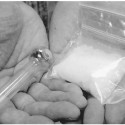Understanding the Disease Model of Addiction
The disease model of addiction expresses that addiction is a brain disease. A brain disease which only gets worse as it progresses through various stages. The disease of addiction has no cure, but it can be treated. The answer to treatment is medical intervention (using medication-assisted treatment), abstinence (completely staying away from drugs) and sustained with support for the addiction (Group and/or individual counseling along with other therapies).
According to the National Institute on Drug Abuse, addiction is a brain disease that affects multiple brain circuits, including those involved in reward and motivation, learning and memory, and inhibitory control over behavior.
Understanding the Disease Model of Addiction Stages

Seeing addiction as a disease can help with treatment and recovery.
Addiction gets worse as it goes from stage to stage. Making it hard for the person afflicted with this illness to control the symptoms brought on by it. Here is how the main stages addiction progress and get worse:
- Experimentation: At this stage a person may want to try drugs or alcohol for social reasons -such as at a party with friends, or maybe just to feel better. Others may be using prescription medications for pain and they begin to use more than necessary -because they like the way it makes them feel. Regardless how it starts, if they do not stop and continue, then they are moving into regular use.
- Regular use: The stage of regular use can lead to abuse if not careful. Some will use a substance for a while and not become addicted. They can stop anytime with no negative results. However, for others it may become difficult. They do not want to stop and will continue to use it. This can lead into the next stage -abuse of the substance.
- Substance abuse: A person with a substance abuse problem will use alcohol or drugs regardless of the outcome or negative consequences that may result. At this point all they want is to continue using what is making them feel better –drugs, alcohol, or both. This stage presents risk as it can easily lead into serious addictive problems. They now developed dependence for the substance, and go into the next stage, where the signs of addiction become present and noticeable.
- Addiction and dependence: Dependency and addiction connect with each other. The symptoms, such as withdrawal when the substance is abruptly stopped, affects the individual in similar ways. Including facing the negative consequences of continued use regardless the harm it can be causing in their life –physically, psychologically or socially.
Once the addiction has become evident, the health risks can be dangerous, in many cases causing permanent damage or death. The stages clearly get worse if treatment is not sought immediately. The sooner treatment starts, the better the chances for the afflicted individual to get back to becoming healthier and happier, without the use of any harmful substances.
Getting Treatment at Any Stage of the Disease Model of Addiction
If you or a loved one is currently at any of the stages of addiction, it is important to get help immediately. Many of the symptoms that can be encountered at any time or when withdrawal occurs, can be dangerous -even potentially fatal. Seek medical attention from addiction professionals to begin treatment as soon as possible. The earlier treatment starts, the better the chances at successfully controlling the addiction.


